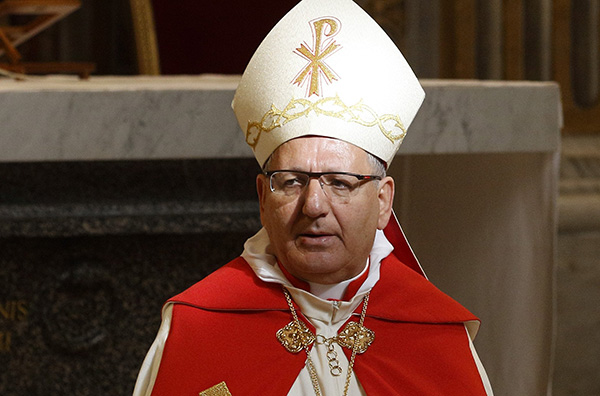The word ‘Allah’ is for all, not just Muslims the Malaysian High Court’s recent decision
The World Evangelical Alliance has welcomed the Malaysian High Court’s recent decision that recognized as unconstitutional and invalid a 1986 government directive that banned non-Muslims from using the word “Allah” to refer to God.
WEA Secretary General Thomas Schirrmacher, on April 6, described the ruling as “a step in the right direction towards affirming religious freedom for all Malaysians and evidence that the constitutional system of separation of powers functions well.”
The March 10 ruling came in response to a case in 2008.
The government confiscated CDs from Jill Ireland when she returned from Indonesia because they contained Christian material and had the word “Allah” written on them.
Some 13 years after the incident and following a lengthy legal process, the court now concluded that the government’s action violated Ireland’s constitutional rights to refer to the Christian God as “Allah,” which is the generic word for “God” in the Malay language used by people of different faiths.
Jill Ireland has campaigned for Christians’ right to use the word since immigration officials at a Kuala Lumpur airport seized eight Christian CDs from her in May 2008 because the CDs
Jill Ireland Lawrence Bill is from Sarawak and the Melanau tribe and went through Malaysia’s national education system where she was taught in Bahasa Malaysia, the Malay Mail reported on March 24.
JILL IRELAND
Jill Ireland and her family use Bahasa Malaysia, the primary language of Malaysia, to practice their Christian faith while also using the Alkitab (or the Bible) in Bahasa Indonesia and written and audio-visual materials in the Bahasa Indonesia language.
Some Muslims in Malaysia claimed the word “Allah” to be exclusive to Islam.
However, the Malay Mail reported that the Arabic word had long been adopted into Bahasa Malaysia and Bahasa Indonesia in the neighboring country to refer to God.
It is also part of terms in the indigenous languages of natives in Sabah and Sarawak that refer to God. Such use can be traced back to hundreds of years ago, well before Malaysia’s Home Ministry’s written directive in 1986 to ban such usage.
After a seven-year legal battle, Ireland was given back the CDs in 2015, but she maintained that the court had failed to address her constitutional right as a Christian to use the word.
The court’s most recent decision may also have implications for a similar case going back to 2007, said the WEA.
In that case, the government in Kuala Lumpur banned the weekly Herald Malaysia, a Roman Catholic newspaper, from using the word “Allah” in its Malay-language editions, saying that using the Arabic word may offend the local Muslims.
In 2015, the High Court rejected the Catholic Church’s challenge seeking to overturn a ban on non-Muslims using the word “Allah” to refer to God.
That ruling has led to the denial of the use of the word “Allah” by local Christians, who constitute 9 percent of Malaysia’s population.
“The High Court demonstrated a fair and independent approach, and we hope that this decision will be upheld and effectively implemented by the Malaysian government,” said Schirrmacher welcoming the Malaysian High Court’s March decision.
The WEA had previously raised the United Nations issue through the Universal Periodic Review mechanism at the Human Rights Council in 2018.
URGING BAN LIFT
It had urged the Malaysian government “to lift the ban on the use of the word ‘Allah’ by Malaysian Christians, in recognition of their longstanding use of this name for God.”
No other Muslim-majority nation restricts religious minorities from using the word “Allah,” which is of the same linguistic origin as the Hebrew words for God “El” and “Elohim.”
WEAS also said there is also clear evidence that the word “Allah” had been used by Christians, Jews, and pagan believers in Arabia centuries before Islam was established.
In Malaysia itself, it has been used for more than 400 years by non-Muslims and has never been a source of confusion or offense to Islam’s followers.



